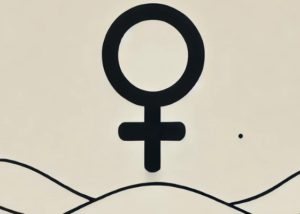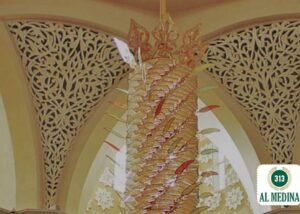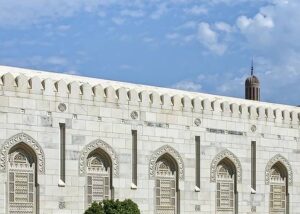Is praying behind people of Bidah Makruh Tahreemi or Tanzeehi?
Quran
Hadith
Islamic Text
بِسْمِ اللَّهِ الرَّحْمَنِ الرَّحِيمِ
In the Name of Allah Most Merciful Most Kind
Short Answer
There is a difference of opinion regarding whether praying behind people of Bidah is Makruh Tahreemi or Tanzeehi. Some Hanafi scholars have explicitly mentioned that it is Makruh Tanzeehi. However, others have recognised the difference of opinion. However, it seems correct to say that the stronger opinion is Makruh Tanzeehi.
Explanation
عَنْ عَائِشَةَ رَضِيَ اللَّهُ عَنْهَا، قَالَتْ: قَالَ رَسُولُ اللَّهِ صَلَّى اللهُ عَلَيْهِ وَسَلَّمَ: مَنْ أَحْدَثَ فِي أَمْرِنَا هَذَا مَا لَيْسَ فِيهِ، فَهُوَ رَدٌّ
(Sayidah) Aishah (May Allah Most High be pleased with her) narrated that the Messenger of Allah ﷺ said: If anyone innovates something into this affair of ours, which is not of it, then it is rejected. (Sahih al-Bukhari, 2697).
In the Hadith above, the Messenger of Allah ﷺ warns against religious innovation (Bidah). Therefore, people who are involved in Bidah must not be put forward as religious leaders. This is because the person who leads prayer is in a position of religious leadership. As such, praying behind such an individual is a problem. Thus, Hanafi scholars said, praying behind people of Bidah is Makruh.
However, is this sinful?
Difference of opinion
It is well established in the Hanafi Madhab that the prayer behind people of Bidah is Makruh. But is it Tahreemi or Tanzeehi? Meaning, is this act sinful or simply best avoided? There is clearly a difference of opinion amongst leading scholars of the Madhab. As seen in the Nusoos (texts) below:
يكون محرزا ثواب الجماعة أي مع الكراهة ان وجد غيرهم وإلا فلا كراهة كما في البحر بحثا وفي السراج هل الأفضل أن يصلي خلف هؤلاء أم الأنفراد قيل أما في الفاسق فالصلاة خلفه أولى وهذا إنما يظهر على أن إمامته مكروهة تنزيها أما على القول بكراهة التحريم فلا. (حاشية الطحطاوي على مراقي الفلاح).
He will achieve the reward of Jamah (congregation). Meaning with dislike if there others are available, otherwise it is not disliked. As mentioned in al-Bahr. In al-Siraj (he said): Is it better to pray behind them or alone? It is said that regarding the immoral person (Fasiq), it is better to pray behind him. This is only the case if his imamate is Makruh Tanzeehan. As for the view that it is Makruh Tahriman then no. (Imam al-Tahtawi, Haashiyah ala Maraaqi al-Falah).
وهذا إنما يظهر على أن إمامته مكروهة تنزيها أما على القول بكراهة التحريم فلا. (البناية شرح الهداية)
This is only the case if his leading is (Makruh) Tanzeehan. As for the view that it is Tahriman, then no. (Imam Badr al-Deen al-Ayni, al-Binayah Sharh al-Hidayah).
In the Nusoos (texts) above, Imam al-Ayni and Imam al-Tahtawi mention the fact that there is a difference of opinion regarding prayer behind a deviant being Makruh Tanzeehi or Tahreemi. Meaning, is it slightly disliked or prohibitively disliked.
Therefore, there is no difference over the fact that prayer behind people of Bidah is Makruh. The difference is over the degree of dislike.
Stronger opinion
فَالْحَاصِلُ أَنَّهُ يُكْرَهُ لِهَؤُلَاءِ التَّقَدُّمُ وَيُكْرَهُ الِاقْتِدَاءُ بِهِمْ كَرَاهَةَ تَنْزِيهٍ، فَإِنْ أَمْكَنَ الصَّلَاةُ خَلْفَ غَيْرِهِمْ فَهُوَ أَفْضَلُ وَإِلَّا فَالِاقْتِدَاءُ أَوْلَى مِنْ الِانْفِرَادِ وَيَنْبَغِي أَنْ يَكُونَ مَحَلُّ كَرَاهَةِ الِاقْتِدَاءِ بِهِمْ عِنْدَ وُجُودِ غَيْرِهِمْ وَإِلَّا فَلَا كَرَاهَةَ كَمَا لَا يَخْفَى. (البحر الرائق شرح كنز الدقائق)
In conclusion, it is slightly disliked for these people to lead, and it is disliked to follow them. It is Makruh Tanzeehan. If it is possible to pray behind others, then that is better, otherwise it is better to pray behind them than praying alone. The dislike in praying behind them is applicable when others are present. Otherwise, there is no dislike, as is obvious. (Imam Zayn al-Deen Ibn Nujaym, al-Bahr al-Raiq).
In this Nass, Imam Ibn Nujaym is clear. He believes that praying behind people of Bidah is Makruh Tanzeehi. Therefore, it is not sinful but best avoided. This is in no way an encouragement to pray behind such people. However, it does dictate that such a prayer does not need to be repeated. Additionally, he also clarifies that even this level of dislike is only applicable when there is another congregation available.
Support for Tanzeehi
وَجُمْلَتُهُ أَنَّ مَنْ كَانَ مِنْ أَهْلِ قِبْلَتِنَا وَلَمْ يَغُلَّ حَتَّى لَمْ يُحْكَمْ بِكُفْرِهِ تَجُوزُ الصَّلَاةُ خَلْفَهُ، وَتُكْرَهُ. (فتح القدير)
In summary, whoever is from our Qiblah and has not been so extreme as to be declared a disbeliever, it is permissible to pray behind him. However, it is disliked. (Imam Ibn Humam, Fath al-Qadeer).
وقال في مجمع الروايات وإذا صلى خلف فاسق أو مبتدع يكون محرزا ثواب الجماعة لكن لا ينال ثواب من يصلي خلف إمام تقي. (مراقي الفلاح شرح نور الإيضاح)
In Majma al-Riwayaat he said: If he prays behind a sinner (Fasiq) or an innovator (Mubtadi), he will attain the reward of praying in congregation. However, he will not attain the reward of one who prays behind a pious Imam. (Imam al-Shurunbulali, Maraaqi al-Falah).
Other Hanafi scholars were not always as clear as Imam Ibn Nujaym, with regards to prayer behind people of Bidah being Makruh Tanzeehi and not Tahreemi. However, they did seem to allude to it. In the Nass above, Imam Ibn Humam says it is permitted to pray behind such people. Had it been Makruh Tahreemi and thus sinful, then he would not refer to it as being permitted.
Better than praying alone
وَفِي النَّهْرِ عَنْ الْمُحِيطِ: صَلَّى خَلَفَ فَاسِقٍ أَوْ مُبْتَدَعٍ نَالَ فَضْلَ الْجَمَاعَةِ
أَفَادَ أَنَّ الصَّلَاةَ خَلْفَهُمَا أَوْلَى مِنْ الِانْفِرَادِ، لَكِنْ لَا يَنَالُ كَمَا يَنَالُ خَلْفَ تَقِيٍّ. (رد المحتار على الدر المختار)
Imam al-Haskafi: In al-Nahr he conveyed from al-Muheet, if a person prayed behind a sinner or an innovator then he (still) gains the virtue of the congregational prayer.
Imam Ibn Abideen: Meaning that praying behind them is better than praying alone. However, it is not equal to praying behind a pious person. (Radd al-Muhtar).
Furthermore, since the scholars agree that prayer behind people of Bidah is Makruh, then one may ask in this case, ‘is it better to pray alone?‘.
This question has been addressed by Imam Ibn Abideen in the Nass above. He asserted that it is still better to pray in congregation (Jamah) than praying alone. Likewise, this also supports Imam Ibn Nujaym’ s position that such a prayer is Makruh Tanzeehi. Since, it is unlikely that Hanafi Imams would prefer a sinful act over one that is usually not sinful.
The real issue
The issue of praying behind certain people and avoiding others has become a source of Fitnah (discord) in our time. Extreme sectarian people have promoted and used this issue to divide the Ummah and promote their sects. This is extremely dangerous, and completely contrary to the teachings of Islam.
It is true that praying behind people of Bidah is Makruh and one should avoid it. However, they have misused this for sectarian purposes. They have applied this to other groups within Ahl al-Sunnah. Thus, they divide the Ummah and confuse the masses.
Therefore, when discussing this issue the focus should not be on whether praying behind people of Bidah is Makruh or not. Rather, the focus should be on recognising who the people of Bidah are. This is because this is the source of the Fitnah in our time. Similarly, this is where sectarian people have caused great confusion.
The answer to this question should never be taken from sectarian people. Rather, it should be asked of mainstream scholars of Ahl al-Sunnah. Those scholars that recognise that the majority of the Ummah is rightly guided. Such scholars will answer this question correctly, in light of the Quran and Sunnah. They will not use it as a tool to divide the Ummah. Nor to achieve sectarian goals.
And Allah Most High Knows Best.
–Answered by Shaykh Noorud-deen Rashid (19.04.24)






